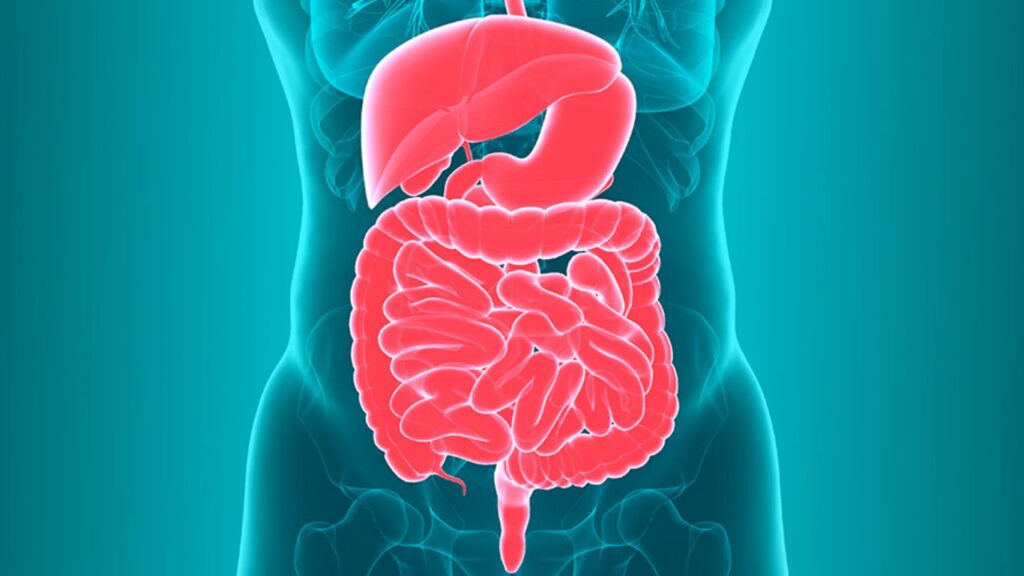In recent years, the health and wellness community has turned its focus to the intriguing and complex relationship between our digestive system and our brain. One aspect of this connection that has garnered significant interest is the role of fasting in promoting digestive wellness. This blog delves into the science behind the gut-brain axis and explores how fasting can impact this dynamic relationship.
The Gut-Brain Axis: A Two-Way Street
The gut-brain axis refers to the bidirectional communication network linking the central nervous system (the brain) with the enteric nervous system (the gut). This network is not just anatomical but also includes endocrine, immune, and neural pathways.
What ayurveda says about fasting:
Ayurveda, the ancient Indian system of medicine, holds fasting in high regard as a vital practice for maintaining and restoring health. According to Ayurveda, fasting is not just a physical process of abstaining from food but a holistic practice that cleanses and rejuvenates the body and mind. It’s viewed as a way to rest the digestive system, allowing the body to eliminate toxins (known as “ama” in Ayurveda) and balance the three doshas (Vata, Pitta, and Kapha), which are the fundamental bio-elements of the human body.
The approach to fasting in Ayurveda is highly individualized, taking into account one’s dosha type, current state of health, and the season. Short, regular fasts are generally preferred over prolonged fasting. Ayurveda also emphasizes the importance of mental and emotional peace during fasting, suggesting meditation and gentle yoga as complementary practices. This holistic approach ensures that fasting not only purifies the body but also promotes mental clarity and spiritual growth.

Understanding the Connection
Neurotransmitters, the chemical messengers of the brain, are not exclusively produced in the brain. A surprising amount of serotonin, a key neurotransmitter involved in mood regulation, is actually produced in the gut. This production is influenced by the gut microbiota – the trillions of microbes living in our digestive tract.
The Microbiome’s Role
The human microbiome, particularly the gut microbiome, plays a crucial role in our overall health. It is a complex ecosystem of trillions of bacteria, viruses, fungi, and other microorganisms residing primarily in our digestive tract. These microbes are not just passive inhabitants; they actively participate in various bodily functions. They aid in digesting food, synthesizing essential nutrients like vitamins B and K, and bolstering the immune system by protecting against harmful pathogens.
Additionally, the gut microbiome significantly influences the body’s metabolism and has been linked to various health outcomes, including obesity, diabetes, and even mental health conditions. This connection is partly due to the microbiome’s ability to affect the production of neurotransmitters, such as serotonin, which plays a key role in mood regulation. The diversity and balance of these microbial communities are therefore essential for maintaining good health, illustrating why the microbiome is often referred to as a ‘forgotten organ.’
Fasting and Its Impact on the Gut
Fasting, the practice of voluntarily abstaining from food for a set period, has significant effects on gut health. During fasting, the digestive system gets a rest, which can lead to reduced inflammation in the gut. This break in digestion allows the gut lining to repair itself, potentially improving its integrity and function. Fasting also influences the gut microbiome, the complex community of microorganisms in our digestive tract. Changes in eating patterns during fasting can alter the composition and activity of these microbial populations, often promoting a more diverse and resilient microbiome. This diversity is crucial for optimal gut health, as it enhances nutrient absorption, bolsters the immune system, and can even impact mental health through the gut-brain axis.
Moreover, fasting has been shown to stimulate autophagy in gut cells, a process of cellular cleanup and renewal, which is essential for maintaining healthy gut tissue. These factors collectively underscore the beneficial impact of fasting on gut health.
Types of Fasting
- Intermittent Fasting (IF): Involves cycling between periods of eating and fasting. Common patterns include 16/8 (fasting for 16 hours, eating within an 8-hour window) and 5:2 (eating normally for 5 days a week and restricting calories on the other 2 days).
- Time-Restricted Feeding (TRF): A form of IF where eating is limited to a specific time window each day.
- Prolonged Fasting: Extends beyond the usual 24-hour cycle, often lasting for several days.

Fasting and the Microbiome
Fasting exerts a profound impact on the gut microbiome, the diverse community of microorganisms residing in our digestive tract. When we fast, the absence of regular food intake triggers a shift in the gut’s microbial composition and function. This change occurs as different microbes adapt to the altered availability of nutrients, leading to an increase in microbial diversity. A diverse microbiome is beneficial for gut health, as it enhances resistance to harmful pathogens, improves digestion and nutrient absorption, and supports a robust immune system.
Furthermore, fasting can promote the growth of beneficial bacteria that produce short-chain fatty acids (SCFAs), compounds vital for maintaining gut barrier integrity and reducing inflammation. These SCFAs also have systemic effects, including improved metabolic health and potential benefits for brain function through the gut-brain axis. Thus, fasting, by modulating the microbiome, plays a significant role in maintaining and improving overall gut health and, by extension, general well-being.
Fasting and the Brain: Enhancing Cognitive Function
Fasting is believed to have several benefits for brain health. It can stimulate a process called autophagy, where cells clean out damaged components, which is crucial for maintaining cellular health. It also enhances neuroplasticity – the brain’s ability to adapt and reorganize itself.
Ketosis: Fasting’s Gift to the Brain
During prolonged periods of fasting, the body enters a state of ketosis, where it begins to burn fat for fuel instead of carbohydrates. Ketones produced during this process are not just an energy source; they are also neuroprotective, helping to improve cognitive function and potentially reduce the risk of neurodegenerative diseases.
Mental Clarity and Mood Regulation
Many people who practice fasting report increased mental clarity and improved mood. This could be attributed to the reduction of inflammation and the balance in neurotransmitter production, both of which are influenced by gut health.
The Healing Effects of Fasting on Digestive Disorders
Fasting can offer therapeutic benefits for various digestive disorders. For conditions like irritable bowel syndrome (IBS) and inflammatory bowel disease (IBD), fasting can help mitigate symptoms by reducing inflammation and giving the gut time to heal.
Fasting and Leaky Gut Syndrome
Leaky gut syndrome, where the intestinal barrier becomes permeable, allowing toxins and bacteria to enter the bloodstream, can also benefit from fasting. Fasting may help in tightening the junctions of the gut lining, reducing permeability.

Practical Tips for Implementing Fasting
Starting Slow
For beginners, it’s advisable to start with shorter fasting periods and gradually increase the duration. This could mean starting with a 12-hour fast and slowly extending the fasting window.
Listening to Your Body
It’s crucial to listen to your body’s signals. Fasting should not cause extreme discomfort or affect your daily functioning. If any adverse effects are experienced, it’s important to reassess and modify the fasting regimen.
Hydration and Balanced Nutrition
During eating windows, focus on hydration and a balanced diet rich in fiber, protein, and healthy fats to support gut health. This ensures that when you do eat, you’re providing your body and brain with the nutrients they need.
Consultation with Health Professionals
Before starting any fasting regimen, especially for those with pre-existing health conditions or those taking medication, consulting with a healthcare provider is essential.
Conclusion
In conclusion, the intricate relationship between fasting and digestive wellness, particularly through the lens of the gut-brain connection, offers a fascinating insight into holistic health management. Fasting not only impacts our digestive system by promoting a healthier, more diverse gut microbiome but also extends its benefits to our cognitive and emotional well-being.

By initiating changes in the gut’s microbial composition, fasting can enhance gut barrier function, reduce inflammation, and even stimulate beneficial processes like autophagy. These changes resonate beyond the gut, influencing brain health through the production of neurotransmitters and other bioactive compounds. This synergy between fasting, gut health, and brain function underscores the interconnectedness of our bodily systems. As we continue to explore and understand these complex relationships, it becomes clear that practices like fasting can be powerful tools in nurturing our overall health, offering a simple yet profound way to harmonize our physical and mental well-being.
Also read; Methods of Early Morning Detoxification and Their Benefits
